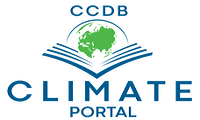Covid-19 and the future of climate policy
- Author(s): Md Mahatab Uddin
- Date of the news : 28th June, 2020

This crisis is the perfect opportunity to begin taking climate science seriously
In 1968, Garrett Hardin, a biology professor at the University of California wrote an essay where he introduced the idea of ‘tragedy of the commons’– a metaphor for the problems of excessive use and degradation of natural resources.
Like many other discourses, the term has also received wide attention from the discourse of international environmental law. Its practical meaning can be explained by an example. For instance, although no state has individual control over the high sea, all states have right on fisheries resources of the high sea. Logically, all states should also have responsibilities to take care of them.
But sadly, like most human beings, most states of the world are more prone to enjoying rights than acting on the responsibilities. As a result, fisheries resources of the high seas are facing serious threats that can be compared with the notion of the ‘tragedy of the commons’.
Similarly, ‘tragedy of the commons’ happens when all countries are busy with degrading natural resources without thinking about the Earth’s climate – which is widely acknowledged as a ‘common concern of humankind.’
In a different sense, the world recently experienced another kind of ‘tragedy of the commons’ in terms of the quick spread of Covid-19 across the world. This is true for both macro and micro level scenarios. At the micro-level, when the world came to know about the existence of the novel coronavirus in Wuhan of China, all states should have taken joint effort to stop the spreading of the disease to other countries (at least for the sake of their own safety). This is because once a pandemic happens, it becomes a ‘common threat’ to all states and preventing or dealing with this ‘common threat’ is only possible through united or joint efforts of all countries.
In case of Covid-19, necessity of united efforts was needed more than anytime before, since the world stands at the peak of globalisation and any contagious disease can spread all over the world even faster than our imagination.
Unfortunately, at macro level, all states of the world combinedly missed this opportunity. Almost all countries (except for a few handful) could not isolate themselves at the right time, as such could not prevent mass level contagion.
At the micro level, within states, it was a duty of the citizens and residents to isolate themselves and follow health rules in a manner that prevented them from catching Covid-19. Likewise, the states, citizens of the states also failed to isolate themselves in time and follow appropriate health rules.
In many cases, the public even broke government-imposed lockdowns. Hence, most states and their citizens led themselves towards a kind of ‘tragedy of the commons’. It is understandable that those who earn their livelihoods by day labour or those who do not have enough savings to make ends meet during the lockdown period have enough reasons for not following health rules.
But it has also been observed that in many countries people broke lockdown just for the sake of observing social or religious festivals. People all over the world even did not mind going to sea beaches while they were supposed to stay at home.
However, even during people’s disobedience to health rules and states’ failure to prevent the pandemic by taking the due steps in due time, one silver lining is that most states and policymakers eventually started acting according to guidelines given by the scientists and concerned experts.
This is what we can consider as a positive outcome of this pandemic. It seems like the relation between science and policy has reached a crossroad, as German Federal Environment Minister recently (during the Petersburg Climate Dialogue XI in April) stated that “We are learning to listen to the scientists.”
In view of the above circumstances, scientists and researchers all over the world expect that at the time of sketching post Covid-19 world scenarios, policymakers will also take climate experts’ recommendations into account.
This is because it is the most suitable time to fully initiate a climate-friendly world. For instance, during this period of lockdown or emergencies, countries can focus on setting up an improved internet network, based on which post Covid-19 world will allow more people to work from home.
If many people stay at home and do not need to go outside for work, it will eventually result in a decrease of carbon footprint of many populations. In this regard, to promote the work from home concept on a wider scale, countries should also make proper plans about how to promote virtual meetings.
Further, it is time for countries to raise fossil-fuel taxes and decrease taxes for renewable energy. Countries can also think of introducing electric vehicles and installing electric vehicle charging networks on a wide scale.
Such efforts of building a climate-friendly world can be further complemented by countries’ efforts of expanding cleaner public transport, meaning expanding renewable energy run public vehicles like bus, train, steamer, etc. Besides, it is time for countries to plan for building climate-resilient infrastructures. It means countries should adopt ‘green architecture’ policy for its future infrastructures.
Finally, in this period of emergency, countries should think about planting more and more trees. Especially coastal countries should think about planting more trees in the coastal zone and building strong ‘green belts,’ which will protect them from tidal surge and catastrophic cyclones.
Policymakers of Bangladesh may also think about implementing the above recommendations, where needed. This is because, like the impact of Covid-19, adverse effects of climate change have already been evident and policymakers can save the future Earth from any form of ‘tragedy of the commons’ only through paying due attention towards what scientists and researchers recommend.
- Source Website: https://www.dhakatribune.com/climate-change/2020/06/28/covid-19-and-the-future-of-climate-policy

